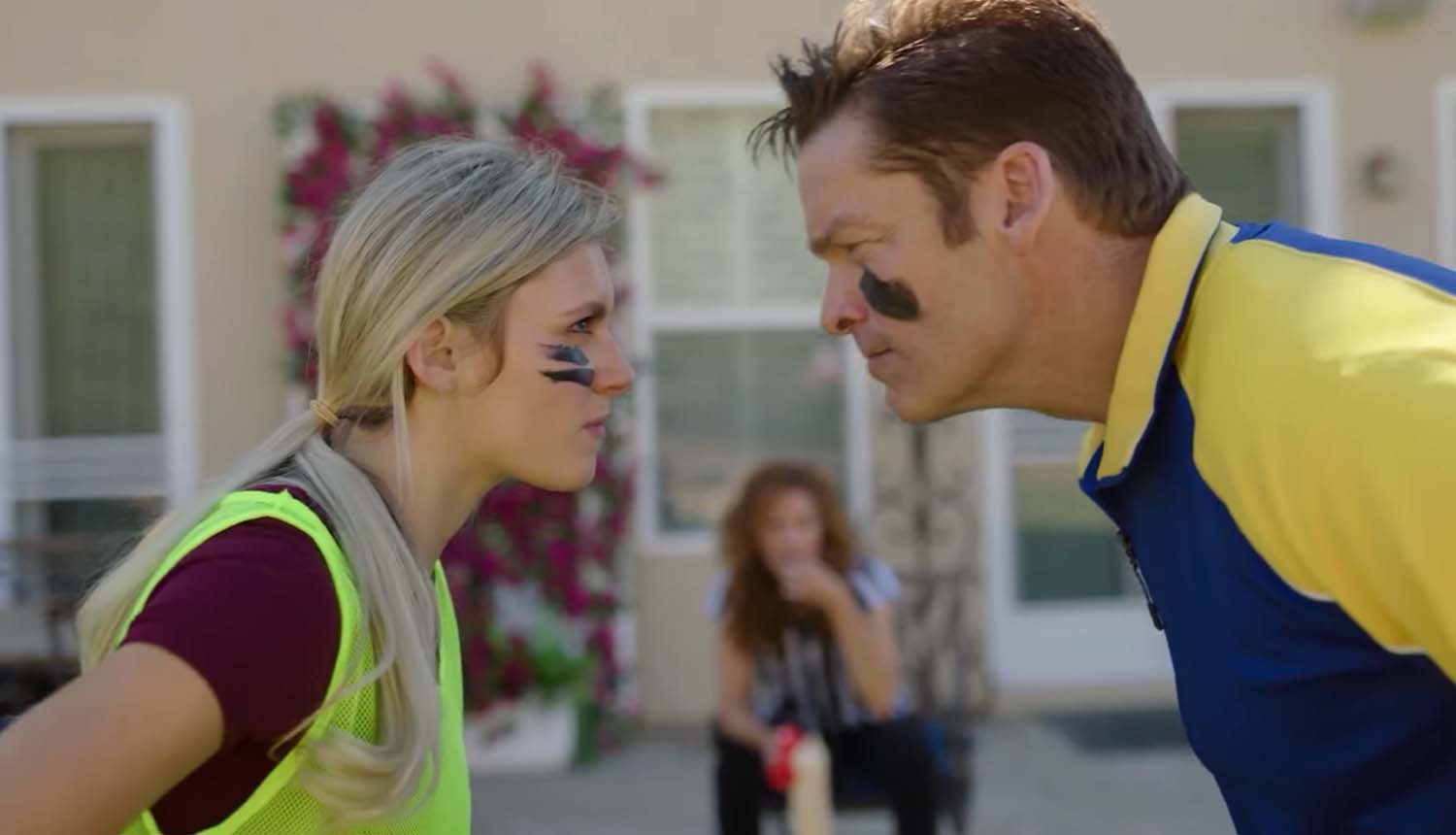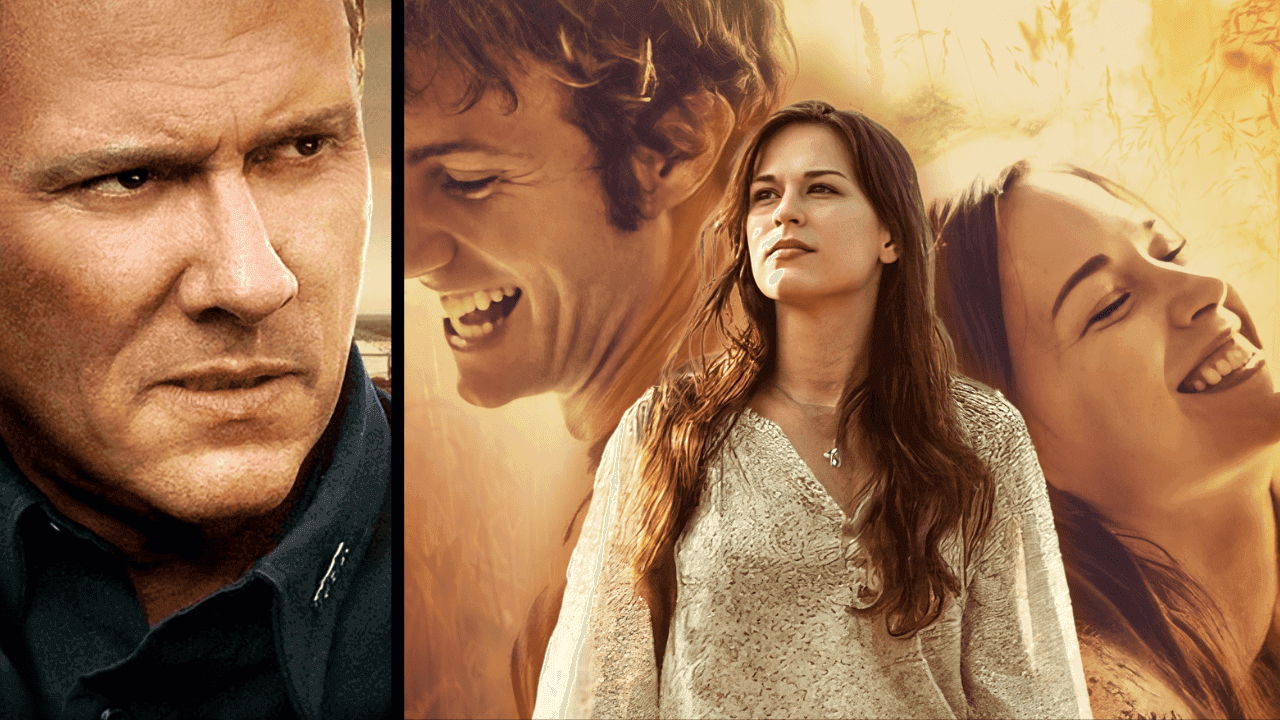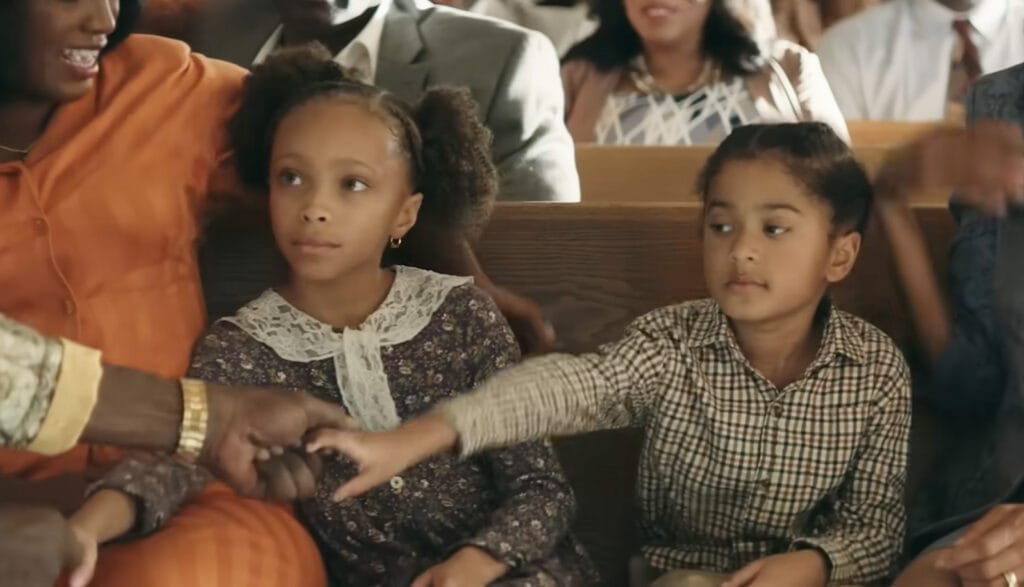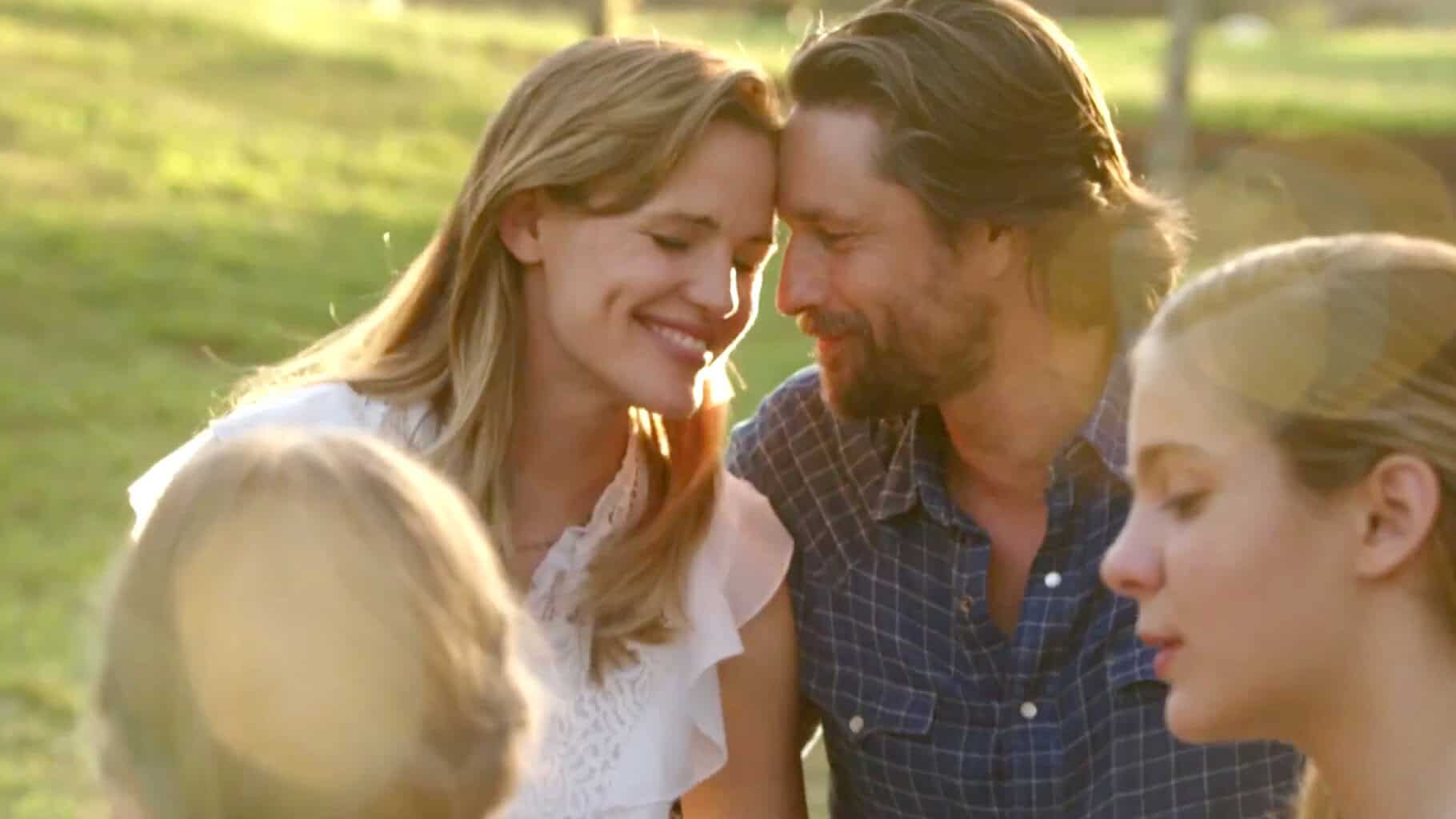What if a man armed only with love could be more powerful than an army? That is the soul-shaking question at the center of Hacksaw Ridge.
Following the attack on Pearl Harbor, America ignites. A generation of young men, fueled by righteous fury, answers the call to serve. It is a time of absolute clarity: the world is at war, and they are the ones who must fight it.
Hacksaw Ridge Review
In the Blue Ridge Mountains of Virginia, a gentle boy named Desmond Doss is forged by a different fire. A childhood fight with his brother Hal nearly ends in death, leaving Desmond shattered.
The violent aftermath finds him staring at an illustration of the Ten Commandments. His eyes lock on the image of Cain standing over the body of Abel. That picture becomes a vow, absolute and unbreakable: He will never take another man’s life.
Desmond believes the war is just and volunteers to serve as a combat medic, determined to save lives while others are taking them. The United States Army labels his conviction as cowardice.
8 Christian Movies That Unmask the Evil Hiding In Plain Sight
His refusal to touch a rifle makes him a pariah among his fellow soldiers. His officers try to discharge him as mentally unstable. His own company beats him in the dead of night.
They are all determined to break him or cast him out, unable to comprehend a man walking into war without its most basic tool.
He survives it all, even a court-martial that nearly sends him to prison. His reward is deployment to the Pacific Theater and the final, bloodiest battle of the war.
There, his company faces Hacksaw Ridge—a sheer, 400-foot escarpment where bodies litter the ground like autumn leaves and blood pools in the foxholes. Into this storm of steel and fire walks Desmond Doss, carrying only his medic kit, his bible, and his promise to God.
The Story Behind the Story
The story on screen is matched by the incredible story of how it was made. For decades, Hollywood courted Desmond Doss, but the humble medic consistently refused.
He feared a movie would betray the truth of his experience and his faith. He finally entrusted his story to a church-directed council, demanding the film be unflinchingly accurate.
Fulfilling that promise took fourteen years of careful navigation to finally bring it to the screen.
The man to fulfill that promise was director Mel Gibson, himself on a journey of redemption after a full decade away from the director’s chair.
Many in Hollywood had written him off. Gibson, feeling a profound connection to Doss’s story of faith, poured everything into the project.
The result was a stunning critical and commercial success that earned him an Academy Award nomination for Best Director, cementing Hacksaw Ridge as his great comeback.
Top 10 Christian Movies For Kids
Gibson’s directorial vision was defined by one word: reality.
To capture the terrifying chaos of the battle, he insisted on using practical effects. The ground-shaking explosions, the searing flamethrowers, and the bodies thrown through the air were all meticulously engineered to immerse the audience in the visceral horror of combat.
This commitment to realism was essential to honoring a man whose courage was profoundly authentic. The cast and crew felt this intense dedication on set every day.
The film became a perfect convergence: a hero who wanted no glory, a director seeking redemption, and a shared, unwavering commitment to the truth. Together, they forged a testament to a man whose actions were, until now, almost too incredible to believe.
One Man Against the Machine
The entire machinery of the military is built on a single, powerful principle: conformity. It takes individuals, breaks them down, and rebuilds them into a unified, interchangeable whole.
A soldier is part of a unit, and the unit is everything. From the moment the recruits step off the bus, Sergeant Howell hammers this into them: move together, think together, fight together.
Into this perfectly ordered machine walks Desmond Doss—a wrench. His refusal to handle a rifle is an act of pure conscience. To the Army, a conscience that contradicts a direct order is a flaw in the system that must be eliminated. The institution tries everything to force him to conform.
10 Christian Movies to Lift Your Spirits When You’re Feeling Down
The ridicule from his superiors is constant. The hazing from his fellow soldiers is brutal, because they see his conviction as a threat to their own survival. They are a unit, and he is an outsider who refuses to belong.
To the men tasked with training these soldiers, Desmond’s stance is a fundamental breakdown of the rules that keep men alive in combat.
When ridicule and violence fail, the institution itself moves to crush him. Captain Glover threatens a Section 8 psychiatric discharge, attempting to label his faith as insanity.
When that fails, the Army escalates to a court-martial, threatening years in federal prison. Desmond’s conviction remains absolute. His endurance reveals a profound form of strength: the power that comes from forcing the world to reckon with your principles, no matter the cost.
Redefining Heroism
In the world of war, the definition of a hero is clear and brutal. A hero is the man who runs toward the gunfire, who kills with skill and courage, who protects his brothers by destroying their enemies.
This hero is personified by men like Smitty Ryker—tough, cynical, and ruthlessly competent. In this world, a man who won’t touch a rifle is branded a coward, a liability destined to get others killed.
This is the label that follows Desmond all the way to Okinawa. He is the man they believe will be useless, the one who will be “too busy wrestling with his conscience” to help when the bullets start to fly.
Top 5 Jesus Movies That Will Shake Your Soul
But on Hacksaw Ridge, when the Japanese counter-attack erupts with unimaginable ferocity, the conventional definitions of bravery are blown to pieces. The armed and able-bodied soldiers are decimated, forced into a desperate, chaotic retreat. The heroes are running for their lives.
And in that moment of total collapse, the man they called a coward makes a different choice. He runs back into the fire.
What follows is a complete re-writing of the rules of heroism. Desmond’s bravery is measured by the 75 lives he saves. He faces the same machine guns, mortars, and enemy soldiers.
His weapon is an unbreakable will to preserve life in a place dedicated to death. This extraordinary courage was a guiding force for the actor who portrayed him.
The film’s ultimate statement on heroism comes from the men Desmond served with. The soldiers who once beat him and cast him out come to see him as a miracle. They refuse to make the final assault on Hacksaw without him, waiting for his prayers before they will even climb the ridge.
His actions proved a new kind of hero exists—one whose sacrifice inspires others to believe in something greater than themselves.
The Trauma of a Past War
Where does a conviction so absolute that it can withstand beatings, ridicule, and the threat of prison come from? For Desmond Doss, it wasn’t just found in scripture; it was forged in the fire of his own home.
His father, Tom Doss, is a ghost of the Great War, a man who survived the trenches of France only to bring the battlefield home with him. The violence he witnessed didn’t end in 1918—it seeped into his soul, poisoning his life and the lives of his family.
Desmond’s pacifism is a direct response to trauma. We see this in a harrowing flashback, where a drunken argument escalates until his father pulls a gun, threatening his own family.
Top 5 Christian Movies On Netflix
A young Desmond, seeing his mother in mortal danger, wrenches the pistol away from him. In that terrifying moment, holding the weapon in his own hands, he makes a vow to God that he will never touch one again. It’s a promise born from the terrifying realization of what a good man, broken by war and rage, is capable of.
Desmond’s refusal to bear arms is a shield, not just for others, but for himself. It’s a wall built against the violence he inherited, a way to ensure he never becomes the man his father was.
This deep, personal wound is the source of both his pain and his extraordinary strength. It’s a truth his father could only admit when surrounded by the ghosts of his past.
In the end, the film reveals a tragic but powerful cycle. The trauma of one war created the conviction that would define a hero in the next.
But Desmond Doss doesn’t enter the battlefield to perpetuate that cycle of violence. He goes to break it. His unwavering refusal to kill becomes an act of healing—not just for the men he saves on the ridge, but for the deep and painful wounds of his own past.
“Please Lord, Help Me Get One More”
Everything in Desmond Doss’s life—the violence of his childhood, his love for Dorothy, the brutal persecution in basic training—was preparation for a single night.
After a catastrophic Japanese counter-attack, the order is given: fall back. The American forces are shattered. Any man who can still move scrambles down the cliff face, leaving the ridge to the enemy and the dying.
Desmond is there, at the edge of safety, with chaos behind him and escape just a few feet below. From the smoke and fire, he hears the cries of the men left behind.
Top 10 Christian Movies Based On True Story
In that moment, his conviction is tested one last time. He turns back to the battlefield and with all the strength in his soul, utters a simple prayer that becomes his mantra for the next twelve hours: “Please, Lord, help me get one more.”
The climax that follows is one of quiet, agonizing, superhuman endurance. One by one, he finds the men who had mocked him, hoists them onto his back, and drags them through mud and carnage to the edge of the cliff.
At the base of the ridge, the survivors watch in disbelief as body after body is lowered from the darkness. The man they dismissed as a coward is single-handedly emptying the battlefield.
He runs on pure faith, returning again and again to the heart of hell, repeating his plea: “Help me get one more.” It is one of the greatest acts of heroism in American history, a story that almost defies belief.
The Verdict
Hacksaw Ridge is a masterwork of filmmaking and an unflinchingly realistic war film. Mel Gibson’s direction places you squarely in the chaos and terror of combat.
The film’s true power is its focus on the man who defied the violence. Andrew Garfield’s transformative performance is the soul of the film, capturing a man of profound gentleness and unbreakable will.
The verdict is that Hacksaw Ridge is an essential film. It is a stunning, deeply moving story about faith, courage, and the power of a single human spirit in a world gone mad.
Top 9 Christian Movies To Watch In 2025
The film shows you a hero, then forces you to look inward and ask what you truly believe, and how much you would sacrifice for it.
The story of Desmond Doss is a timeless and urgent example of how a single person, armed with nothing but their principles, can face the absolute worst of humanity and prove that goodness can triumph.
The film was a massive success, both critically and commercially, grossing over $180 million worldwide. It holds a “Certified Fresh” score of 84% on Rotten Tomatoes and an audience score of 91%, along with an IMDb rating of 8.1 out of 10.
The film leaves you with one inescapable question, one that echoes long after the credits have rolled. It forces you to look at your own life, your own beliefs, and ask yourself:
What is the one conviction you hold that you would never compromise, no matter the cost?
Let us know your answer in the comments below.









10 Full Christian Movies You Can Watch for FREE (Right Now!)
2.5K views